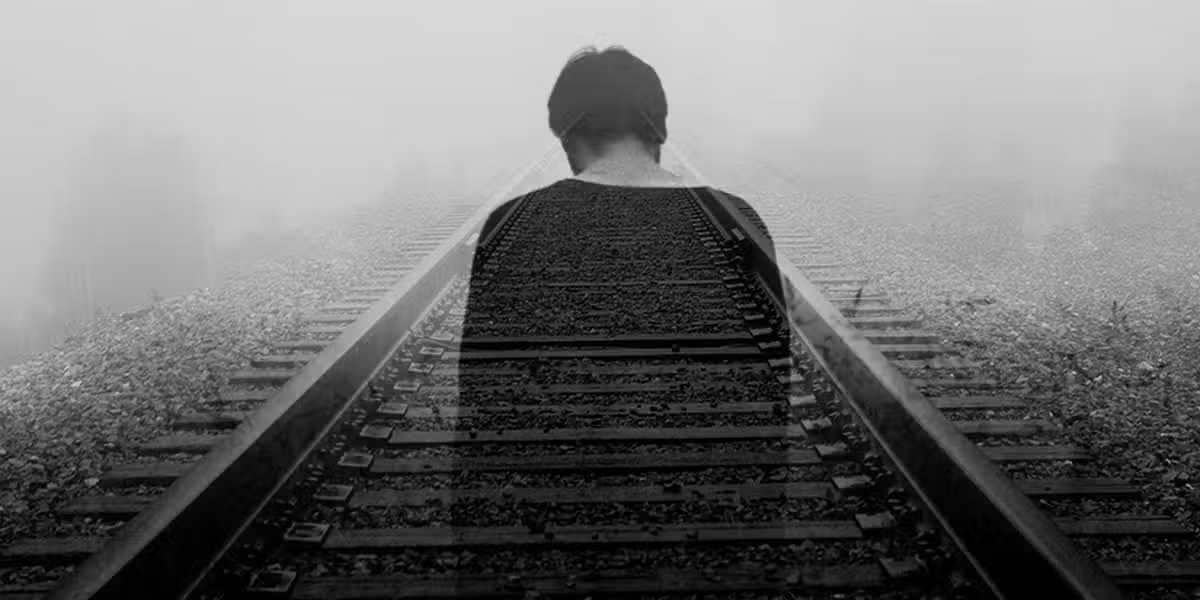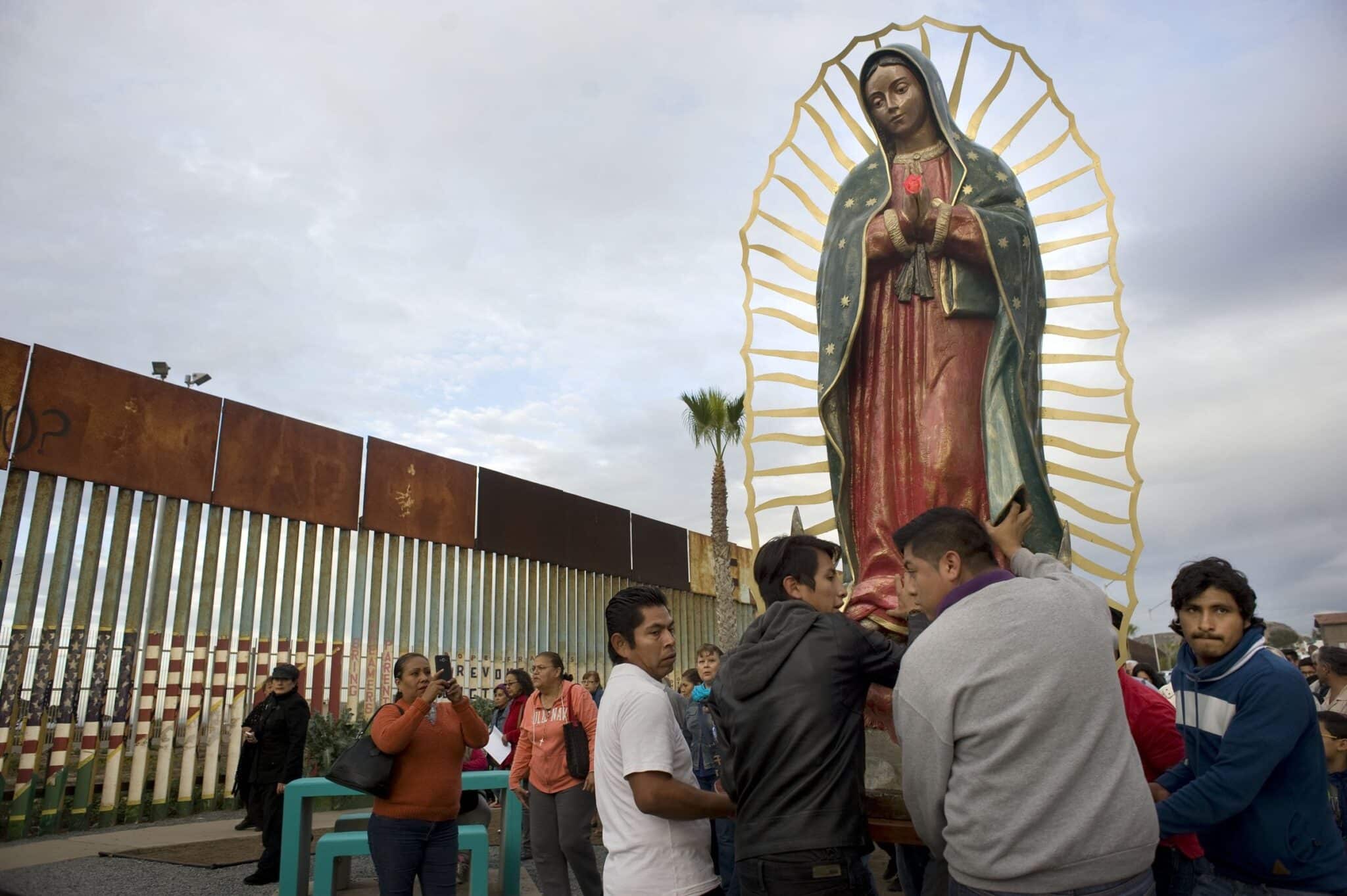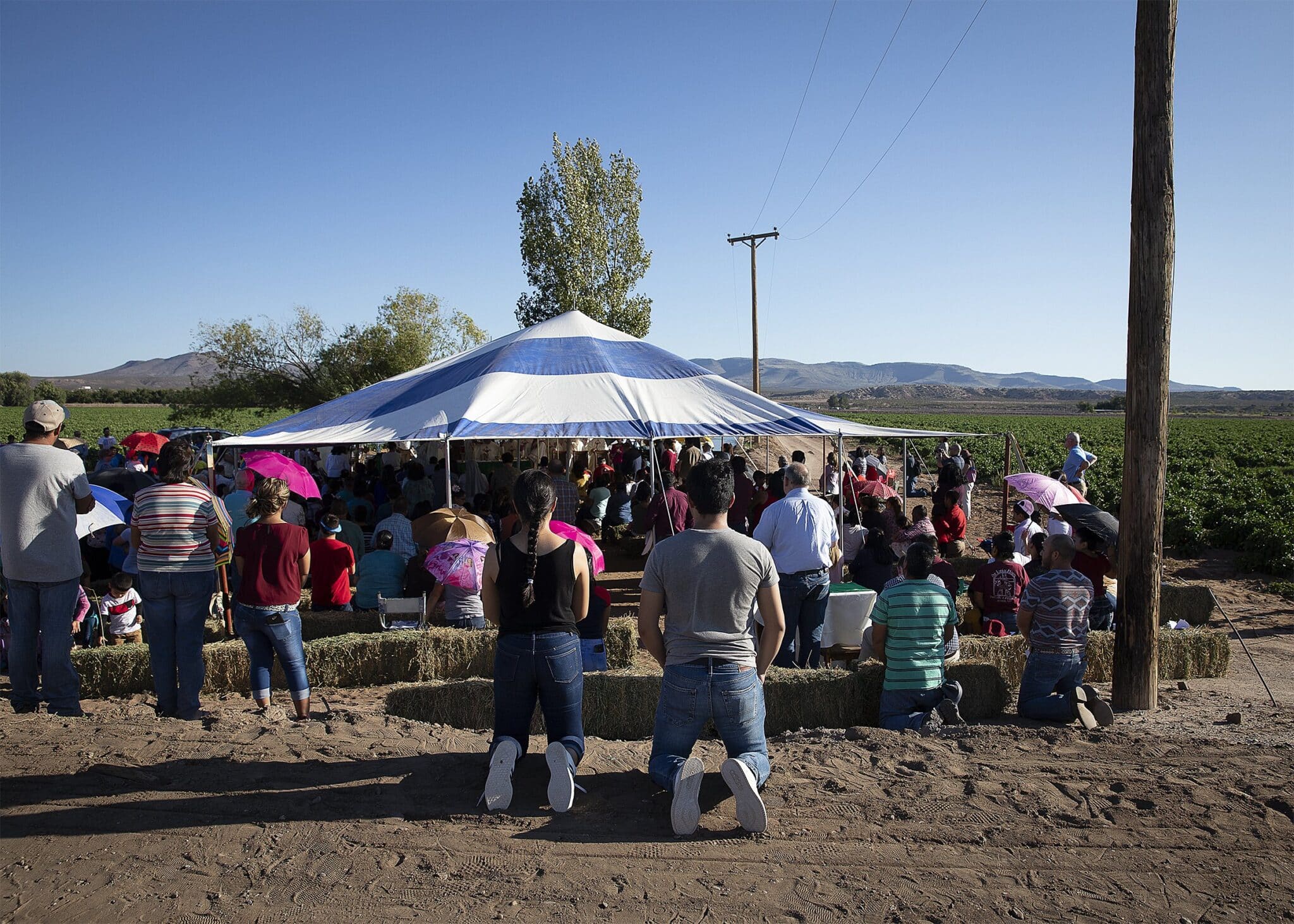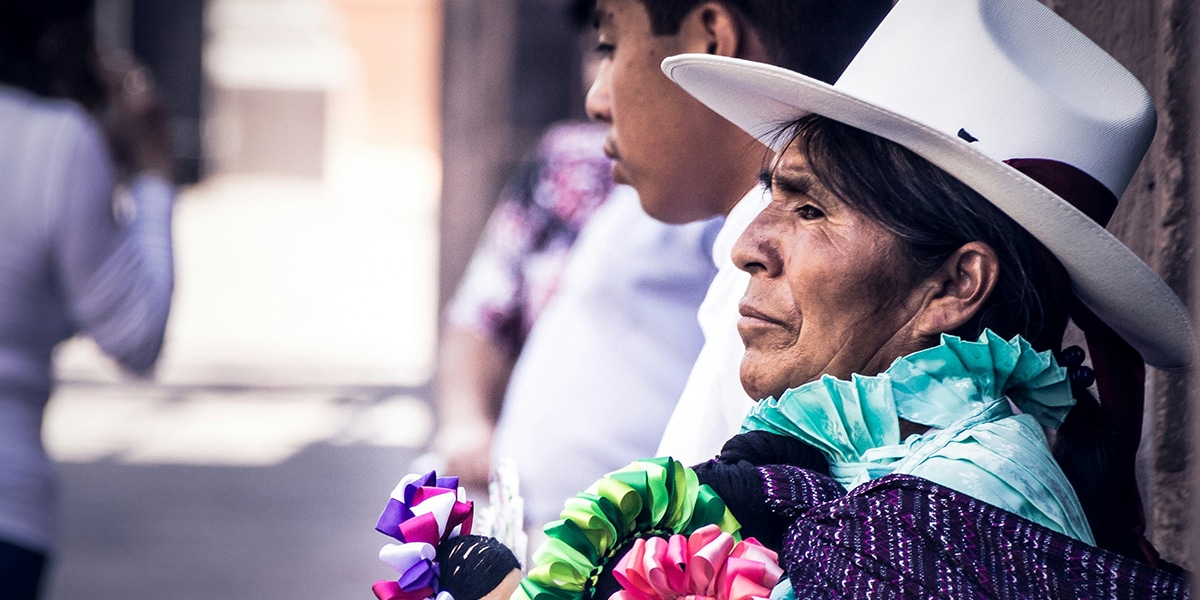Suicide is the 10th leading cause of death in the United States. This renowned theologian has been speaking and writing about suicide for decades.
So many people live with the pain of losing a loved one to suicide. I rarely go for even a week without receiving a letter, an email, or a phone call from someone who has just lost a family member to suicide. In virtually every case, there is a corresponding sorrow that there really isn’t a lot of material out there, religious or secular, to help console those left bereaved. Those left behind literally gasp for human and theological oxygen.
When someone close to us dies by suicide we live with a pain that includes confusion (“Why?”), guilt (“What might we still have done?”), misunderstanding (“This is the ultimate form of despair”) and, if we are believers, deep religious anxiety as well (“How does God treat such a person? What’s to be his or her eternal destiny?”) What needs to be said about suicide?
1. Suicide is a disease. We are made up of body and soul. Either can snap. We can die of cancer, high blood pressure, heart attacks, aneurysms. These are physical sicknesses. But we can suffer these as well in the soul. There are malignancies and aneurysms of the heart, deadly wounds from which the soul cannot recover. In most cases, suicide is the emotional equivalent of cancer, a stroke, or a heart attack.
Like any terminal illness, suicide takes a person out of life against his or her will. The death is not freely chosen, but is an illness, far from an act of free will. In most instances, suicide is a desperate attempt to end unendurable pain, much like a man who throws himself through a window because his clothing is on fire.
Moreover, still to be more fully explored, is the potential role that biochemistry plays in suicide. Since some suicidal depressions are treatable by drugs, clearly then some suicides are caused by biochemical deficiencies, as are many other diseases that kill us.
2. Suicide is a tragedy, not an act of despair. For centuries, suicide was considered as an act of despair and despair itself was seen as the most grievous sin of all—ultimately unforgivable. Sadly, many church people still see suicide as an act of despair and as the unforgivable sin against the Holy Spirit. But this is a misunderstanding. Suicide is not an act which cannot be forgiven. That suicide is an act of despair is not what the Christian Churches, and certainly not the Roman Catholic Church, believe or teach.
In most cases, the person who takes his or her own life does not intend that act as an insult or affront to God or to life (for that would be an act of strength and suicide is generally the antithesis of that). What happens in most suicides is the polar opposite. The suicide is the result of a mammoth defeat.
There’s a powerful scene in the musical adaption of Victor Hugo’s, Les Miserables. A young woman, Fantine, lies dying. She tells of once being youthful and full of hopeful dreams; but now, worn-down by a lifetime of poverty, crushed by a broken heart, and overcome by physical illness, she is defeated and has to submit to the tearful fact that “there are storms we cannot weather.”
For reasons ranging from mental illness to an infinite variety of overpowering storms that can break a person, sometimes there’s a point in people’s lives where they are overpowered, defeated, and unable to continue to will their own living – parallel to one who dies as a victim of a drought, hurricane, cancer, heart disease, diabetes, or Alzheimer’s. There’s no sin in being overpowered by a deadly storm. We can be overpowered, and some people are, but that’s not despair (which can only be willful and an act of strength).
3. We can love someone and still not be able to save him or her from death. There is a misunderstanding about suicide that expresses itself in second-guessing: If only I had done more! If only I had been more attentive this could have been prevented.
Rarely is this the case. Most of the time, we weren’t there when our loved one died for the very reason that this person didn’t want us to be there. He or she picked the time and place precisely with our absence in mind. Suicide is a disease that picks its victim precisely in such a way so as to exclude others and their attentiveness. That’s part of the anatomy of the disease.
We, the loved ones who remain, should not spend undue time and energy second-guessing as to how we might have failed that person, what we should have noticed, and what we might still have done to prevent the suicide. Suicide is an illness and, as with a purely physical disease, we can love someone and still not be able to save him or her from death. God too loved this person and, like us, could not interfere with his or her freedom.
This, of course, may never be an excuse for insensitivity to those around us who are suffering from depression, but it’s a healthy check against false guilt and anxious second-guessing. Many of us have stood at the bedside of someone who is dying and experienced a frustrating helplessness because there was nothing we could do to prevent our loved one from dying. That person died, despite our attentiveness, prayers, and efforts to be helpful.
So too, at least generally, with those who die of suicide. Our love, attentiveness, and presence could not stop them from dying, despite our will and effort to the contrary.
4. There is huge distinction between falling victim to suicide and killing oneself. I receive a lot of very critical letters every year suggesting that I am making light of suicide by seeming to lessen its ultimate taboo and thus making it easier for people to do the act: Wasn’t it G.K. Chesterton himself who said that, by killing yourself, you insult every flower on earth? But in most suicides, a person is taken out of life against his or her will.
Many of us have known loved ones who died by suicide and we know that in almost every case that person was someone who was the antithesis of the egoist, the narcissist, the over-proud, hardened, unbending person who refuses, through pride, to take his or her place in the humble and broken scheme of things. Usually it’s the opposite. The person who dies by suicide has cancerous problems precisely because he or she is too sensitive, too wounded, too raw, and too bruised to possess the necessary toughness needed to absorb life’s many blows.
I remember a comment I once heard at a funeral. We had just buried a young man who, suffering from clinical depression, had died by suicide. The priest had preached badly, hinting that this suicide was somehow the man’s own fault and that suicide was always the ultimate act of despair. At the reception afterwards, a neighbor of the man who had died came up and expressed his displeasure at the priest’s remarks: “There are a lot of people in the world who should kill themselves, but they never will! But this man is the last person who should have killed himself; he was the most sensitive person I’ve ever met!” Too true.
Killing yourself is something different. It’s how some of the Hitlers pass out of this life. Hitler, in fact, did kill himself. In such a case, the person is not too sensitive, too self-effacing, and too bruised to touch others and be touched. The opposite. The person is too proud to accept his or her place in a world that, at the end of the day, demands humility of everyone.
There is an infinite distance between an act done out of weakness and one done out of strength. Likewise, there is an absolute distinction between being too bruised to continue to touch life and being too proud to continue to take one’s place within it. Only the latter makes a moral statement, insults the flowers, and challenges the mercy of God.
5. God’s mercy is equal even to suicide. The Christian response to suicide should not be horror, fear for the person’s eternal salvation, and anxious self-examination about we did or didn’t do. Suicide is indeed a terrible way to die, but we must understand it for what it is—a sickness—and stop being anxious about both the person’s eternal salvation and our less-than-perfect response to his or her illness.
God redeems everything and, in the end, all manner of being will be well, beyond even suicide. Given the truth of this, we need to give up the notion that suicide puts a person outside the mercy of God. God’s mercy is equal even to suicide.
After the resurrection, we see how Christ, more than once, goes through locked doors and breathes forgiveness, love, and peace into hearts that are unable to open themselves because of fear and hurt. God’s mercy and peace can go through walls that we can’t. And, as we know, this side of heaven, sometimes all the love, stretched-out hands, and professional help in the world can no longer reach through to a heart paralyzed by fear and illness.
But when we are helpless, God is not. God’s love can descend into hell itself (as we profess in our creed) and breathe peace and reconciliation inside wound, anger, and fear. God’s hands are gentler than ours, God’s compassion is wider than ours, and God’s understanding infinitely surpasses our own.
6. We die into the loving, tender arms of God. Few images are as primal, and as tender, as that of a mother holding and cradling her newborn baby. Indeed, the words of the most-renowned Christmas carol of all time, “Silent Night,” were inspired by precisely this image. Joseph Mohr, a young priest in Germany, had gone out to a cottage in the woods on the afternoon of Christmas Eve to baptize a newborn baby. As he left the cottage, the baby was asleep in its mother’s lap. He was so taken with that image, with the depth and peace it incarnated, that, immediately upon returning to his rectory, he penned the famous lines of “Silent Night.” His choir director, Franz Gruber, put some guitar chords to those words and froze them in our minds forever. The ultimate archetypal image of peace, safety, and security is that of a newborn sleeping in its mother’s arms. Moreover, when a baby is born, it’s not just the mother who’s eager to hold and cradle it. Most everyone else is too.
Perhaps no image then is as apt, as powerful, as consoling, and as accurate in terms of picturing what happens to us when we die and awake to eternal life as is the image of a mother holding and cradling her newborn child. When we die, we die into the arms of God and surely we’re received with as much love, gentleness, and tenderness as when we were received into the arms of our mothers at birth. Moreover, surely we are even safer there than we were when we were born here on earth. I suspect too that more than a few of the saints will be hovering around, wanting their chance to cuddle the new baby. And so it’s okay if we die before we’re ready, still in need of nurturing, still needing someone to help take care of us, still needing a mother. We’re in safe, nurturing, gentle hands.
7. We must work at redeeming the life and memory of our loved ones who have died by suicide. There is still a huge stigma surrounding suicide. For many reasons, we find it hard both to understand suicide and to come to peace with it. Obituaries rarely name it, opting instead for a euphemism of some kind to name the cause of death. Moreover, and more troubling, we, the ones left behind, tend to bury not only the one who dies by suicide but his or her memory as well. Pictures come off the walls, scrapbooks and photos are excised, and there is forever a discreet hush around the cause of their deaths. Ultimately neither their deaths nor their persons are genuinely dealt with. There is no healthy closure, only a certain closing of the book, a cold closing, one that leaves a lot of business unfinished. This is unfortunate, a form of denial. We must work at redeeming the life and memory of our loved ones who have died by suicide.
This is what Harvard psychiatrist Nancy Rappaport does in a moving book about her mother, who died by suicide when Nancy was still a child: In Her Wake, A Child Psychiatrist Explores the Mystery of Her Mother’s Suicide. After her mother’s suicide, Nancy lived, as do so many of us who have lost a loved one to suicide, with a haunting shadow surrounding her mother’s death. And that shadow then colored everything else about her mother. It ricocheted backwards so as to have the suicide too much define her mother’s character, her integrity, and her love for those around her. A suicide that’s botched in our understanding, in effect, does that; it functions like the antithesis of a canonization.
With this as a background, Nancy Rappaport sets off to make sense of her mother’s suicide, to redeem her bond to her mother, and, in essence, to redeem her mother’s memory in the wake of her suicide.
God’s Empathy
A better understanding of suicide will not necessarily mean that the darkness and stigma that surround it will simply go away. We will still feel many of the same things we felt before in the face of suicide: We will still feel awful. We will still feel conflicted and be given over to guilt-feelings and second-guessing. We will still feel uneasy about how this person died and will still feel a certain dis-ease in talking about the manner of his or her death. We will still feel a certain hesitancy in celebrating that person’s life in the manner we would have had the death been by natural causes. We will still go to our own graves with a black hole in our hearts. The pain of a suicide leaves its own indelible mark on the soul.
But at a different level of understanding something else will break through that will help us better deal with all those conflicted feelings; namely, empathy for and understanding of someone whose emotional immune system has broken down. And that understanding will also bring with it the concomitant consolation that God’s empathy and understanding far exceeds our own.
As Dietrich Bonhoeffer put it: “Nothing can make up for the absence of someone we love. It is nonsense to say that God fills the gap; God doesn’t fill it, but on the contrary, God keeps it empty and so helps us keep alive our former communion with each other, even at the cost of pain. The dearer and richer our memories, the more difficult the separation. But gratitude changes the pangs of memory into a tranquil joy. The beauties of the past are borne, not as a thorn in the flesh, but as a precious gift in themselves.” (Letters and Papers from Prison)
If you are struggling with feelings of hopelessness, call or text 988 for help.









12 thoughts on “7 Things Catholics Need to Know about Suicide”
This has helped cleared my thoughts and makes perfect sense.after losing my eldest son brian to suicide .I’ve been looking for something to give me a better sense of understanding trying to process what had happened.thanks.
Thank you
I’m still struggling so much after my husband of 35 years died by suicide. It’s as if most people now forever remember him by how he died instead of how he lived.Not fair nor kind.
My friend was a selling marijuana and doing bad things. He took his life but days before he asked God to forgive him. He knew what he was doing. He was not the most upstanding person, but there were a lot of good things about him. Im just saying this because not all suicides are mental illness, I think that idea just takes the edge off for people.
My understanding of this disease has been opened up from where I stood on it, through the experience of loosing close friends and relatives to it and getting help from prevention programs near me .ThankGod for people willing to spread to word.
My only aon, Matthew, died by suicide at 19 years old. It’s been 5.5 years and I still struggle with it. I’ve had friends tell me he’s in hell. I know the Catholic Church does not teach that anymore. But they taught it ling enough to have many people still believing it. I don’t know if he had mental illness. He never showed me any signsm but friends say he talked about it a lot. And said he was worthless. I never ever would have believed he thought that. All i ever told him was how much he was loved. How wonderful he was. I do know he was in despair over a girlfriend cheating on him and being ashamed of it. Maybe that is mental illness. I don’t know. But I do believe he is with God. And I will see him one day.
I am so very sorry for your loss. I see by what you have written your son was a very special and sensitive person. I pray for you and your son Matthew and all who loved him.
I am so sorry to hear that your friends have told you those things. I would imagine that God judges people who say horrible, hurtful, and callous things much more harshly than those who make an impulsive decision under the influence of depression. I have heard people say the same things before, and it is apparent that they only say these things because they have never been in the shoes of someone with severe depression.
I am praying for you.
There are serious problems with this article. First off, to suggest that Hitler was a rational, sane person who killed himself out of a position of “strength” is a gross mischaracterization of history. He was addled by drugs, most probably had the beginnings of Parkinson’s, and all but stated he had life-long manic depression. Personally, I no longer believe in hell but you seem to beleive Hitler (who was born/baptized Roman Catholic) is in hell. However, based on your own statements here, his mental illness would’ve rendered him guiltless in his own death. Which means, according to this logic, if he had sought absolution through confession, prior to shooting himself in the bunker, he would’ve gone to heaven!! I am no longer a Catholic because of stuff like this. Now, fortunately for your argument there’s no evidence he was absolved before he ended his life but this happens with serial killers on death row all the time…no, they’re not committing suicide but they know exactly when they will die and many seek absolution beforehand….this means, according to Catholic doctrine, they go to heaven…while all the non-Catholics that died in the Holocaust go to hell because they didn’t accept Christ. Is this what you believe, sir? Now, I know for a fact the Vatican would not agree with your assertions but, unfortunately, their assertions are bogus too. St. Augustine and the Council of Trent 500 years later both agreed that suicide is “murder”, a mortal sin, and for nearly 2000 years your church preached this. Now, they recognize some people have mental illness and those people may not be entirely responsible. Here’s the official Vatican position:
“Intentionally causing one’s own death, or suicide, is therefore equally as wrong as murder; such an action on the part of a person is to be considered as a rejection of God’s sovereignty and loving plan. Furthermore, suicide is also often a refusal of love for self, the denial of a natural instinct to live, a flight from the duties of justice and charity owed to one’s neighbor, to various communities or to the whole of society – although, as is generally recognized, at times there are psychological factors present that can diminish responsibility or even completely remove it. However, one must clearly distinguish suicide from that sacrifice of one’s life whereby for a higher cause, such as God’s glory, the salvation of souls or the service of one’s brethren, a person offers his or her own life or puts it in danger (cf. Jn. 15:14).”
So the Church does now recognize that psychological factors may “diminish responsibility” but they offer no way to identify these psychological factors after the fact. What does this mean? It means that when a parishioner asks a priest if their loved one who killed themselves is in Heaven, the priest cannot answer the question! If you believe in Church doctrine, you CAN NOT “give up the notion that suicide puts a person outside the mercy of God”…that person may still go to hell because it is up to God and God alone and He knows all…not a very comforting thought for those left behind. Again, things like this are why I left the church. Bad philosophy, hypocrisy, and contradictions in doctrine. The church can never seem to get their story straight. You may want to study this and then consider what YOU actually believe before writing more articles on a topic of such gravity for which the church has no answers. I wish you luck in this.
Wow! I think you read into this article a lot of your own anger at whatever.
The paradox of the Church is that it is holy because of God but also chock full of sin because it is made up of human beings.
I am the mother of a man, who worked for his diocese because it gave him a great opportunity to do good for people, and bring people to know God. He loved his family, loved being with his family.
We just buried him yesterday. His obituary couldn’t list all the good he did, working with other people, who had those same passions such as prison ministry, and work with people with disabilities. He worked for lawful change in our State’s mental illness system works. In fact he is credited with making possible OhioRise, which is helping thousands of children and their parents today. He was also passionate about the right to life of the preborn. There was an event at the Columbus that made national news. A group of pro-abortionists stormed in the cathedral during Mass at he and his boss were attending. This group came into the church with their signs, knocking over and breaking furniture, and storming the altar. The print led the parishioners in prayer
as they dropped to their knees and prayed out loud together, not sure, of course, if they and their children were safe. Men stopped the group from hurting anyone, and they Tried to herd them to the entrance of the church. My son, Jerry and his boss, were also trying to get them out. Jerry told his boss to look after the parishioners, he would look after the protesters. Jerry’s boss told me how amazed he was at how easily and gently Jerry, by himself, got the group to go outside. He stood in front of the church and asked them what they wanted to talk about. He might be able to answer their questions.
The news videos didn’t show the entire scene and the beeped out the foul and truly loathsome language the protesters used, not only against the Church but against Jerry personally.
I mention this because a woman, who witnessed Jerry talking gently to the protesters. She told me it was as though Jerry was a force of Good who pushed back Evil. She said it really like that. She thought Evil recognized the disease Jerry was experiencing and pushed against him in his weakness.
Mental illness has a tendency in families. That is true for me and my ancestors. Jerry had dealt with depression in the past. He had just taken a job as the Executive Diector of the Ohio Bishops’ Conference. In the first year, he suffered COVID twice, the second time was worse than the first. He had lingering health problems. Then he had a car accident. He had a nerve injury that left him often in pain. These events were not just physical. We noticed the mental illness taking over. We noticed he began to obsess, eat less, sleep less and less.
He began to think of himself as a failure in his work, as a husband, and as a father. He was in a lot of physical pain and mental pain for close to four years before he died. He took medication, went to council ingredients, and was hospitalized different times. But he often said toward the last, that he can’t live like this much longer. Like the person with cancer, the body finally let’s go. Jerry may have planned the circumstances of his death, I doubt he actually realized what was doing. I have heard of many people, who have tried suicide, say that it was like watching a movie. They were watching a person die, that they were apart from the action itself. Jerry even said once that, after an attempt that didn’t work, he woke up on the floor and wondered what happened.
Some people just won’t be able to survive their illness, whatever it is.
I don’t know how you were hurt, but you might want to talk to someone about it. Holding on to anger isn’t good for you. The Church is growing in knowledge and understanding all the time, but it is still not perfect. because none of us is perfect.
God punishes those who hurt others, either via commission or omission. Period. Anything else is superstitious nonsense that evinces a continuing paganism (“God punishes those who don’t perform the correct rituals”). Suicide is not good and should be preached against. But the suicide who has hurt no one but himself is someone to be pitied, not cursed. Indeed, in my reading, suicides are closer to God, albeit less close than those who are miserable and contemplate suicide, but forego it, because suffering (which is what drives most suicides) not only brings us closer to God psychologically, it actually increases our direct connection to the Crucified One. Those who look on suicide with metaphysical horror are really those who are overly attached to physical life at the expense of Heaven.
WOW!
I know the catholic church (all organized religion) have caused great pain and confusion for some of it’s followers. So i won’t go into bullet points here, there are many. What I want to say, is I am a young catholic and I have had many personal grievances with what the church preaches. The point is, it hasn’t changed my belief in Jesus as the one true God embodied as man or in the holy spirit – Even though the church sometimes fails us. The church is just a group of (human) people who profess they know God and his teachings more than others and what we should do and not do based on “their” understanding of scripture. They interpret their understanding of the bible, just as anyone who does in reading it for themselves.
My point is that so many people say they left the church because they don’t fully agree with them. So with that logic, should we oust everyone in our lives who don’t agree with us. Unless we want to live on an island alone, common sense would be to understand they are human with human flaws and evolve over time no differently than anyone else does. The only difference is that the people represent a large concept than one-to-one experiences.
It seems that some posts I have read is that how God will punish you for this or that, based on the interpretation of the bible by people/the church. Couldn’t you agree to disagree and still continue to live you life where you and the church are evolving?
I’m not saying that I think you have to be a member of any organized religion to be allowed in heaven. I don’t think you can buy God’s grace, like paying an admission fee based on which church you are a follower of. But you don’t have to leave the church because you don’t agree with everything they teach. It would be better to stay help the church evolve.
Bottom line, JESUS is the way.
Keep the faith!
Iam using cancer as way to commit suicide by not choosing to be treated, will God strike me down and send me to hell. God did give us the gift of free will? didn’t he?